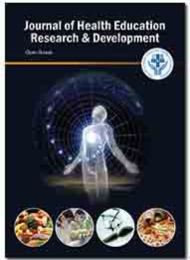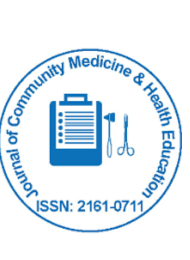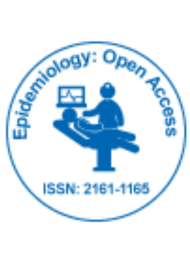Theme: Theme:
EPIDEMIOLOGY HEALTH MEET 2024
- About Conference
- Sessions / Tracks
- Market Analysis
- Past Conference
- Benefits of participation
- Guidelines for participants
With great pleasure we would like to welcome all the participants across the World to attend the “7th Annual Conference on Epidemiology and Public Health” scheduled on June 20-21, 2024 in Dublin, Ireland. Focusing on the theme “Get into the whole field of exploring Epidemiology and Public Health”. This conference provides a platform for scientists, researchers and young researchers, professors, various companies of directors in the field of epidemiology and public health and other medical related fields to share their knowledge. We also take massive pleasure in welcoming various professionals from distinct countries all over the world.
EPIDEMIOLOGY HEALTH MEET 2024 is an international conference to build research work, therapeutic findings and disorders related to microbial diseases, viruses, and infections caused by bacteria and fungi. These types of diseases may be caused due to water-borne, food-borne, and airborne human beings as well as in plants and animals. When it comes to microbiology and virology, the microbes are characterized as the heart, most of the solutions to the pressing problems in the world. It also represents the increasing importance of human mortality around the globe. Therefore, vaccination and vaccine development play a significant role in terms of global health.
Why to Attend???
With individuals from around the globe concentrated on finding out about Health Care, this is your single best chance to achieve the biggest gathering of members. Lead showings, convey data, meet with present and potential clients, make a sprinkle with another product offering, and get name acknowledgment at this 3-day occasion. Widely acclaimed speakers, the latest strategies, strategies, and the most up to date refreshes in the fields of Healthcare are signs of this meeting. It is very beneficial for the Healthcare practitioners and fellowship owners because it provides knowledge in the field. It also gives opportunities to the companies to showcase their products and have face to face meetings with scientists increasing their business opportunities. It also gives companies to know about their market competitors
WHO TO ATTEND?
- Epidemiologists
- Neurologist
- Gastroenterologist
- Endocrinologist
- Clinicians
- Cardiologists
- Psychiatrists
- Nutritionists
- Pediatrician
- Oncologist
- Dentist
- Dermatologist
- Health care experts
- Healthcare analysts
- Nurse practitioners
- Doctors
- Physicians
- Business delegates
- Young Researchers
- Professionals in media sector
- Professors
- Industrial Experts
- Management Bodies
- Medical Colleges and Hospitals
- Academic & Business Professionals
- Students
- Scientists
- Medical and Pharma Companies
- Researchers & Innovators
- Sales & Marketing Professionals
Track 1: Orthopaedic Epidemiology
Orthopaedic epidemiology is a branch of epidemiology that focuses on the study of musculoskeletal disorders and conditions, particularly those related to the bones, joints, muscles, and associated structures. Epidemiology is the study of how diseases and health-related conditions are distributed in populations and the factors that influence their distribution. In the context of orthopaedics, epidemiologists gather and analyse data to better understand the prevalence, causes, risk factors, and outcomes of various orthopaedic conditions and injuries.
Orthopaedic epidemiology plays a crucial role in public health and clinical practice by providing insights into the incidence and prevalence of musculoskeletal disorders, identifying potential risk factors (such as genetics, lifestyle, and occupational exposures), and helping to inform strategies for prevention and treatment. Researchers in this field may investigate a wide range of orthopaedic conditions, including osteoarthritis, fractures, ligament injuries, back pain, and more. The findings from orthopaedic epidemiological studies can contribute to the development of evidence-based guidelines and interventions to improve musculoskeletal health and patient outcomes.
- Osteoarthritis
- fractures
- ligamentinjuries
- backpain
Track 2: Foodborne Epidemiology
Eating food tainted with germs, viruses, parasites, or chemical agents such heavy metals can result in over 200 diseases. As a result of the burden on healthcare systems, lost productivity, and harm to trade and tourism, this expanding public health issue has a significant socioeconomic impact. The burden of sickness and mortality in the world is largely caused by these diseases.
From diarrhea to cancer, foodborne diseases cover a wide variety of diseases. While they can also cause neurological, gynecological and immunological symptoms, gastrointestinal problems are the most common presentation. The burden of diarrheal diseases is disproportionately borne by low- and middle-income nations and by young children, although they constitute a substantial concern in all nations of the world.
- Health and hygiene
- Food poisoning
Track 3: Infection &Injury Epidemiology
Complex battlefield injuries have been survived by an unprecedented percentage of combatants in recent conflicts. These people are more likely to get infections caused by multidrug-resistant pathogens. With a focus on contemporary literature, the epidemiology, prevention, and management of these illnesses are targeted.
Due to their prevalence and complexity, infections following combat trauma necessitate a multidisciplinary approach to prevention and treatment.
Short courses of narrow-spectrum prophylactic antibiotics and infection control are included in the prevention of infections; debridement and irrigation are the mainstays of the prevention of wound infections.
- Epidemiologic Triad
Track 4: Molecular Pathological Epidemiology
Molecular Pathological Epidemiology (MPE) is an interdisciplinary field that combines principles from molecular biology, pathology, and epidemiology to better understand the complex interplay between molecular alterations in tissues, environmental factors, and disease development in individuals and populations. In MPE, researchers examine how molecular features, such as genetic mutations, epigenetic modifications, and protein expression, contribute to the onset, progression, and outcomes of various diseases, including cancer, cardiovascular diseases, and neurodegenerative disorders. This approach allows for a deeper understanding of disease heterogeneity and the identification of specific subtypes within a broader disease category.
MPE also emphasizes the importance of considering individual variations in disease susceptibility and response to treatments based on molecular profiles. It can inform personalized medicine approaches, helping clinicians tailor therapies to patients' unique molecular characteristics for more effective and targeted treatments. By integrating molecular data with epidemiological and clinical data, MPE offers insights into disease etiology, prognosis, and potential interventions. It has the potential to revolutionize healthcare by advancing our understanding of disease mechanisms and improving precision medicine strategies for better patient outcomes.
- Genetic mutations
- Cancer
- Cardiovascular diseases
- Heterogeneity
Track 5: Neuro-Psychiatric Epidemiology
Neuro-psychiatric epidemiology is a specialized field within epidemiology that focuses on the study of the prevalence, distribution, determinants, and outcomes of neurological and psychiatric disorders in populations. It aims to unravel the complex interactions between genetic, environmental, social, and behavioral factors that contribute to the development and progression of conditions affecting the nervous system and mental health.
In neuro-psychiatric epidemiology, researchers investigate a wide range of disorders, including but not limited to Alzheimer's disease, schizophrenia, depression, bipolar disorder, epilepsy, and autism spectrum disorders. They collect and analyze data from large cohorts and populations to identify risk factors, protective factors, and patterns of disease occurrence. This knowledge can inform public health strategies, prevention efforts, and healthcare planning.
Understanding the epidemiology of neuro-psychiatric disorders is essential for improving early detection, intervention, and treatment approaches. It also plays a critical role in reducing the stigma associated with mental health issues and promoting more effective healthcare policies and services to support individuals and families affected by these conditions.
Track 6: Cardiac Epidemiology
Cardiac epidemiology is a specialized branch of epidemiology that focuses on the study of heart diseases, also known as cardiovascular diseases (CVDs). It aims to understand the distribution, determinants, risk factors, and outcomes of these diseases within populations. Cardiovascular diseases include conditions like coronary artery disease, heart failure, stroke, hypertension, and peripheral vascular diseases.
Cardiac epidemiologists investigate various aspects of CVDs, including:
- Risk Factors: Identifying and analysing factors that contributes to the development of heart diseases, such as smoking, diet, physical inactivity, genetics, and socioeconomic status.
- Prevalence and Incidence: Estimating the number of people affected by CVDs and tracking the rates at which new cases occur.
- Outcomes: Studying the impact of heart diseases on mortality, morbidity, and quality of life.
- Interventions: Assessing the effectiveness of interventions and preventive strategies, such as lifestyle modifications, medications, and medical procedures, to reduce the burden of CVDs.
- Health Disparities: Investigating disparities in CVD prevalence and outcomes among different population groups.
Cardiac epidemiology plays a critical role in informing public health policies and healthcare practices aimed at reducing the global burden of heart diseases. By understanding the epidemiological patterns and risk factors associated with CVDs, researchers and policymakers can develop targeted interventions and preventive measures to improve heart health and reduce CVD-related morbidity and mortality.
Track 7: Genetic epidemiology
-
Possible treatment for Parkinson’s disease.
Track 8: Pediatric & Women health Epidemiology
Following a systematic assessment of the health of the women of reproductive age and the children in the community, including timely data collection, analysis, interpretation, and use of maternal and child health-related data, the study of the distribution and determinants of health-related status or events in mothers and children as well as the application of health problems related to mothers and children. Most susceptible to morbidity and mortality are mothers and their young children. It is crucial to protect them as a result by taking the proper steps at each level. Using surveillance, assessment, planning, implementation, monitoring, and evaluation, the women and child health epidemiology programme focuses on the skills needed to address the health issues of mothers and children.
Track 9: Health and Community Nutrition
The focus of community nutrition is on all age groups. The target demographics include infants, expectant mothers, and older persons. Community nutrition initiatives try to alter perceptions so that a diet high in fruits, vegetables, and whole grains is more enticing than one high in fats and sugars.
- Awareness Of Healthy Eating
- Probiotics- Nourishment For The Gut
- Climate-friendly and Sustainable Eating
- Personalized Nutrition
Track 10: Cancer epidemiology
Epidemiology of cancer examines the prevalence of cancers in human communities. Epidemiologists research cancer incidence, prevalence, and particular mortality in an effort to pinpoint environmental and genetic factors that contribute to the disease and advance cancer diagnosis, treatment, and prevention
Early diagnosis, prevention, and screening for cancer; Described patterns and trends; Methodology; Risk factors for cancer beginning, development, and prognosis are major targets.
- Cancer etiology
- Cancer survivorship
- Racial differences in cancer mortality and cancer and health disparities
Track 11: Clinical epidemiology& Pharmaco-epidemiology
Clinical pharmacology is the study of how medications affect people. Clinical pharmacology includes pharmacoepidemiology, which can give important details on the better assessment of the risk/benefit ratio for a drug's use in a patient is made as a result of understanding the positive and negative effects of any drug.
- Pharmacodynamics
- Pharmacokinetics
Track 12: Professional diseases& preventive methods
The study of population health and disease is known as epidemiology. The ongoing, systematic gathering, analysis, and interpretation of health data is known as disease surveillance. Data from disease surveillance are used to assess the need for public health intervention.
Health and disease in populations are the focus of epidemiology. A continuing, systematic process of gathering, evaluating, and interpreting health data is called disease surveillance. When deciding whether or not public health intervention is necessary, disease monitoring statistics are used.
- Health risks of the migrants
Track 13: Effect of stress and trauma during pregnancy
Long-term exposure to excessive stress levels can result in heart disease and high blood pressure, among other health issues. Stress during pregnancy can raise the likelihood of having a kid that is born too early.
Prenatal stress may impact pregnancy by interfering with the adjustments that the mother's endocrine, neurological, and immunological systems make during the course of the pregnancy. The hypothalamo-pituitary-adrenal (HPA) axis' tendency to respond less strongly to stress and the immune system's shift toward an anti-inflammatory profile in pregnant women.
- Economic factors influencing child and maternal health
- Myths followed during pregnancy
Track 14: Epidemiology and Surveillance
The study of population health and disease is known as epidemiology. The ongoing, systematic gathering, analysis, and interpretation of health data is known as disease surveillance. Data from disease surveillance are used to assess the need for public health intervention.
Information from surveillance systems can be used to: track changes in disease incidence over time (such as outbreaks); identify risk factors for the disease and populations most at risk; direct immediate public health measures for specific patients or the community; and direct programmes.
- Malaria vector surveillance
- DNA-Based Biosensors
Track 15: Public Health Policy & Health management
Healthcare policy, economics, finance, and law are dynamic, ever-evolving fields. Researchers with a focus on the healthcare sector and health policy, as well as high-impact practitioners in healthcare policy and management are evolving simultaneously. The administrative and managerial skills, organisational frameworks, and processes required to fund and deliver healthcare services more effectively, efficiently, and fairly are all covered by public health management.
Track 16: Impact of modern lifestyle on public health
Every day, we make decisions that affect our health, both consciously and unconsciously. This can apply to both little and significant choices, such as those we make regarding our careers, our diets, and how frequently we exercise. But when we neglect to put ourselves first, we run the risk of compromising our health. A poor lifestyle can have a negative impact on health in several important ways.
- Sleep scarcity and it’s stress
- Effects of poor nutrition
Track 17: Epidemiology and Tropical Diseases
The neglected tropical illnesses affect more than a billion people, or one-sixth of the world's population, largely in developing nations. Many vector-borne diseases, such as malaria, dengue fever, Chagas disease, leishmaniasis, filariasis, onchocerciasis, schistosomiasis, and trypanosomiasis, are becoming more common and spreading faster as a result of climate change and global warming.
Track 18: Modern epidemiology and the use of biostatistics
The distribution and causes of sickness and health in populations are studied by epidemiologists. The planning, execution, and assessment of public health programmes and the data from public health research are all areas in which biostatisticians create and apply statistical theory, methods, and techniques. Essentially, the purpose of biostatistics is to decipher the data that has been received and draw reliable conclusions that may be applied to address issues with public health.
- Problems in evaluating cofounders and effect modifiers in statistics and epidemiology
Track 19: Epidemiology and Sociology
A deeper understanding of how, where, and why disparities affect health is made possible by social epidemiology, which enables the integration of population social experiences into the traditional etiological approach to public health.
It focuses in particular on the prevalence, distribution, and socioeconomic factors that affect a population's health conditions. As a result, social epidemiology includes the study of the social context in which the health-disease phenomena occurs in addition to the investigation of individual risk factors.
Track 20: Oral epidemiology
Oral epidemiology is a branch of epidemiology that specifically focuses on the study of oral health and diseases affecting the oral cavity, including the teeth, gums, oral mucosa, and supporting structures. It involves the application of epidemiological principles to understand the distribution, determinants, and outcomes of oral health conditions within populations. Oral epidemiology plays a crucial role in identifying risk factors for oral diseases, evaluating the effectiveness of preventive measures and treatments, and informing public health policies related to oral health.
Oral epidemiology provides valuable insights into the distribution, determinants, and outcomes of oral health conditions, helping to guide preventive efforts, improve treatment strategies, and promote oral health equity within populations. By applying epidemiological principles to the study of oral diseases, researchers and public health professionals work to address the global burden of oral health problems and improve overall oral health outcomes.
Scope and Importance:
Epidemiology and public health are intertwined fields crucial for safeguarding and enhancing the health of populations. Epidemiology focuses on understanding the distribution, causes, and patterns of diseases and health-related events in communities. It involves disease surveillance, outbreak investigation, and research to uncover risk factors. Its scope spans from identifying the origins of diseases to the development of preventive strategies and health policies.
Public health, on the other hand, encompasses a broader range of activities. It involves disease prevention, health promotion, environmental health, policy development, and emergency preparedness, with a primary goal of improving overall community well-being. Public health initiatives often rely heavily on epidemiological data to design interventions, allocate resources, and address health disparities.
The importance of epidemiology and public health is evident in their roles in disease prevention, health equity, and the well-being of entire populations. They contribute to disease control, health policy development, and emergency response, ultimately enhancing the quality of life and longevity of individuals and communities. These disciplines are essential for mitigating health threats, promoting health equity, and improving public health outcomes worldwide.
Global Epidemiology Equipment Market:
The global epidemiology equipment market for infectious disease treatments should grow from USD 72.4 billion in 2021 to USD 106.3 billion by 2026, at compound annual growth rate (CAGR) of 8.0% during the forecast period. The market is expected to witness significant growth owing to increasing prevalence of degenerative diseases. Moreover, growing geriatric population is also expected to propel the market over the forecast period.
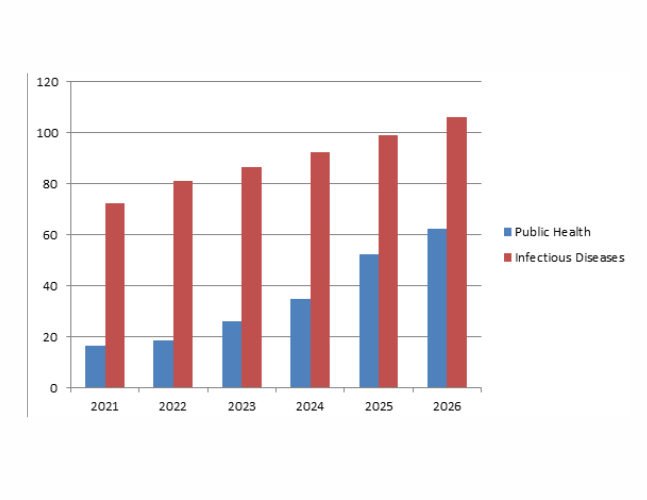
Global Public health Market:
The global public health market encompasses a broad range of sectors, including healthcare services, pharmaceuticals, medical devices, and public health organizations. It addresses the challenges of preventing, managing, and controlling diseases on a global scale. Factors driving this market include the increasing burden of chronic diseases, pandemics, government investments in healthcare infrastructure, and the demand for innovative healthcare solutions. Key players in this market include government health agencies, pharmaceutical companies, non-profit organizations, and healthcare providers. With a focus on disease prevention, health equity, and improved healthcare access, the global public health market is poised for growth and innovation in the pursuit of better population health.
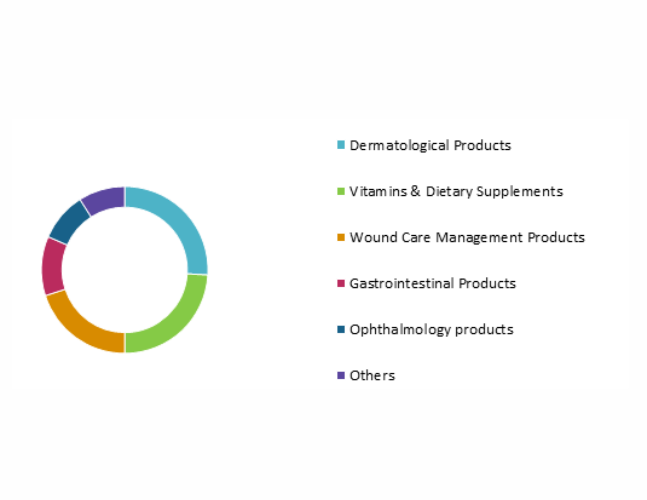
Conference Highlights:
- Orthopaedic Epidemiology
- Foodborne Epidemiology
- Infection &Injury Epidemiology
- Molecular Pathological Epidemiology
- Neuro-Psychiatric Epidemiology
- Cardiac Epidemiology
- Genetic Epidemiology
- Pediatric & Women health Epidemiology
- Health and Community Nutrition
- Cancer Epidemiology
- Clinical epidemiology& Pharmaco-epidemiology
- Professional diseases& preventive methods
- Effect of stress and trauma during pregnancy
- Epidemiology and Surveillance
- Public Health Policy & Health management
- Impact of modern lifestyle on public health
- Epidemiology and Tropical Diseases
- Modern epidemiology and the use of biostatistics
- Epidemiology and Sociology
List of Epidemiology Hospitals around the World:
- Mayo Clinic-Rochester
- Massachusetts General Hospital
- The Johns Hopkins Hospital
- Toronto General-University Health Network
- Stanford Health Care-Stanford Hospital
Major Epidemiology Associations around the Globe:
- Association of Chinese Epidemiology
- Cameroon Society of Epidemiology (CaSE)
- Association of University Programs in Health Administration, USA
- Australasian Epidemiological Association (AEA)
- Cambodian Society of Infectious and Tropical Diseases
- Cameroon Directorate for Compating Disease, Epidemics and Pandemics
- Canadian Society for Epidemiology and Biostatistics (CSEB)
- Finnish
- for Public Health, UK
- Saudi Epidemiological Society (FES)
- Danish Epidemiological Society (DES)
- Egyptian Society of Epidemiology (ESE)
- Egyptian Veterinary Association of Epidemiology
- Epidemiological Association of Bangladesh (EPAB)
- Epidemiological Society of Nigeria (EPiSON)
- French International Agency for Research on Cancer
- German Society for Epidemiology (DGEpi)
- Indian Association of Preventive and Social Medicine (IAPSM)
- Indian Public Health Association (IPHA)
- Indian Society for Medical Statistics (ISMS)
- International Society for Environmental Epidemiology (ISEE)
- Iranian Epidemiological Association (IrEA)
- International Society for Pharmacoepidemiology (ISPE)
- Italian Association of Epidemiology (AIE)
- Italian Society of Medical Statistics and Clinical Epidemiology / Società Italiana di Statistica Medica ed Epidemiologia Clinica (SISMEC)
- Italy National Institute of Health
- Japan Epidemiological Association (JEA)
- Lebanese Epidemiological Association (LEA)
- Netherlands Epidemiological Society (VvE)
- Portuguese Association of Epidemiology (APE)
- Romanian Society of Epidemiology (SRE)
- Royal Society Epidemiological Association (SEA)
Related Societies:
USA: Association of University Programs in Health Administration, Public health institutes in Las Vegas, Association of University Programs in Health Administration, Association for Middle Eastern Public Policy and Administration (AMEPPA), American Epidemiology Therapy Association, Federation of State Boards of Infectious Diseases, American Association of Yemeni Students and Professionals, Oregon Pioneer Association
Asia Pacific: Australasian Epidemiological Association (AEA), Epidemiological Association of Bangladesh (EPAB), Hong Kong Epidemiology Association, Japan Epidemiological Association (JEA), Asia Pacific Society of Infection Control, Asia Pacific Strategy for Emerging Diseases and Public Health.
Middle East: Middle East Fertility Society, Iranian Epidemiological Association (IrEA), Saudi Epidemiological Association (SEA ), Turkish Epidemiology Association, Cameroon Directorate for Combating Disease, Epidemics and Pandemics, Tunisian Environmental Exposure and Epidemiology Association (TEEEA).
EUROPE: Europe - International Epidemiological Association, The European Public Health Association, ISEE Europe Chapter - International Society for Environmental, European Society of Cardiology: Epidemiology and Prevention, European Public health Association, Epidemiology of COPD | European Respiratory Society.
Advantages of Participating in our Conference:
- The advantages of the Speaker and abstract pages are created in Google on your profile under your name would get worldwide visibility.
- Our comprehensive online advertising attracts 30000+ users and 50000+ views to our Library of Abstracts, which takes researchers and speakers to our conference.
- Meet with hundreds of like-minded experts who are pioneers in Public Health and share ideas.
- All participants in the conference would have a different reason to participate with eminent speakers and renowned keynote speakers in one-to-one meetings.
- A rare opportunity to listen what the world's experts are learning about from the world's most influential researchers in the area of Public Health at our Keynote sessions.
- Public Health Meet intensive webinar schedule, you will acquire experience and expertise in strategic gift preparation that is worth its weight golf, forming an impressive array of recognised professionals.
- Best Poster Award nominations.
- Award for Outstanding Young Researcher.
- Group Registration Advantages.
Benefits of Participation for Speaker:
- Worldwide appreciation of the profile of Researchers.
- Obtain credits for professional growth.
- Make long-term bonds at social and networking activities.
- An ability to advertise one page in the distribution of ab
- Explore the latest of cutting edge analysis.
- stract books and flyers that ultimately gets 1 million views and adds great value to your research profile.
- Learn a transition beyond your area of interest to learn more about new subjects and studies away from your core subject of Public Health We have distinctive networking, learning and enjoyable integration into a single package.
Benefits of Participation for Delegate:
- Increased knowledge and understanding for professional development.
- Attending conference helps participants feel refreshed and energized.
- Your participation in our conference will support the development of a new approach and philosophy that can be used to improve business or industry results.
- Opportunities for Epidemiology and Public Health field scholars and practitioners to connect and share new perspectives at our conference.
Speaker Guidelines:
- Abstract (300 words) & Biography (100 words)
- Duration of talk 25 minutes
- Questionnaire – 5 Minutes
- Power Point Presentation (PPT) Slides (10-12 maximum)
- Registration Fee
Poster Presentation Guidelines:
- Students (Graduates, Post Graduates and Researcher, scholars)
- Abstract (300 words) & Biography (100 words)
- Duration of talk 20 minutes
- Questionnaire – 5 Minutes
- Poster Size – 1m*1m
- Registration Fee
Delegate & Group registration:
- Students group Registration
- Delegate group Registration
Discounts on group of 4 or more participants from the same
- Companies
- Universities
- Unit/Lab
Conference Highlights
- Orthopaedic Epidemiology
- Foodborne Epidemiology
- Infection &Injury Epidemiology
- Molecular Pathological Epidemiology
- Neuro-Psychiatric Epidemiology
- Cardiac Epidemiology
- Genetic epidemiology
- Pediatric & Women health Epidemiology
- Health and Community Nutrition
- Cancer epidemiology
- Clinical epidemiology
- Professional diseases& preventive methods
- Effect of stress and trauma during pregnancy
- Epidemiology and Surveillance
- Public Health Policy & Health management
- Impact of modern lifestyle on public health
- Epidemiology and Tropical Diseases
- Modern epidemiology and the use of biostatistics
- Epidemiology and Sociology
- Oral epidemiology
To share your views and research, please click here to register for the Conference.
To Collaborate Scientific Professionals around the World
| Conference Date | June 20-21, 2024 | ||
| Sponsors & Exhibitors |
|
||
| Speaker Opportunity Closed | |||
| Poster Opportunity Closed | Click Here to View | ||
Useful Links
Special Issues
All accepted abstracts will be published in respective Our International Journals.
- Journal of Health Education Research & Development
- Journal of Community Medicine & Health Education
- Epidemiology: Open Access
Abstracts will be provided with Digital Object Identifier by






